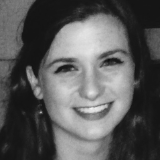Margin Notes: Defining the Decade
By Rachael AllenThis month feels overwhelmed by lists. There are holiday wish lists, gift shopping lists, to-do lists before you get a few days off or take a vacation, lists of subscriptions you have to renew or cancel, resolutions for next year. As always, these lists can give particular structure to the busyness around us, keeping us on track with not only professional work but also emotional work that this month of holidays and end-of-the-year celebration brings for our loved ones and ourselves.
 Then there are the lists that reflect on this year as a whole, marking time. Spotify Wrapped, the music streaming service’s collection of your most-played tracks and artists from the past year, dominated my social media feeds and text messages today, everyone casting pride, amusement, or mock-horror onto their own tastes. Top 10 lists of the best, worst, most-influential movies, television shows, technology, insert-whatever-category-you-please are pinned to newspaper and magazine homepages next to the news. This year, the lists take on particular grandness as many work to define the whole decade (if you’re curious, American Sniper, The Avengers, Bridesmaids, and Frozen are among the New York Times’s choices for most-influential of the decade).
Then there are the lists that reflect on this year as a whole, marking time. Spotify Wrapped, the music streaming service’s collection of your most-played tracks and artists from the past year, dominated my social media feeds and text messages today, everyone casting pride, amusement, or mock-horror onto their own tastes. Top 10 lists of the best, worst, most-influential movies, television shows, technology, insert-whatever-category-you-please are pinned to newspaper and magazine homepages next to the news. This year, the lists take on particular grandness as many work to define the whole decade (if you’re curious, American Sniper, The Avengers, Bridesmaids, and Frozen are among the New York Times’s choices for most-influential of the decade).
I thought about how I would define the decade, if there was any sort of list through which I could structure the last 10 years through best-worst-favorite-etc. But for me, and for my peers, the last decade has spanned all of our teen years, plus a few years into our 20s. Most of our memory is confined to these years. We don’t have much to compare this decade to; we’ve been bound to the rhythm of school for most of it, taking everything in as this is the world rather than this is the world today. It feels as if trying to define a decade would be like trying to do so for my whole life, an overwhelming list.
There’s a newly completed documentary series that, in part, aims to do just this — chronicle someone’s life. Or rather, 14 people’s lives. The series, Up, begins in 1964 when the characters are just 7 years old. Every seven years the director, Michael Apted, and his crew pop back into these characters’ lives to check in on how they’re doing, asking them deep personal questions on camera, an infringement on their privacy that many chafed against at times as they grew, but that most complied with, having accepted their part in the project, the first of its kind to span so many years in real time.
By choosing children from different socio-economic backgrounds, the series was intended to highlight class divisions in Britain and the impact of a child’s background on their future. But as a recent New York Times Magazine article on the series noted, over time the series — “14 Up,” “21 Up,” “28 Up,” and so on — instead came to primarily capture the passage of time, its political aspirations still present but eclipsed by the way that these people and their struggles simply stood for the “everyman.”
It’s odd to think of a director popping into your life to ask you to reflect on the past seven years, articulately, on camera. How does one possibly do all of that time justice? Moreover, in the context of this project, the director cut up the interviews and stitched them together for maximum emotional impact, maximum contrast with the others’ interviews. It became an imperfect retelling, just like memory. I suppose that’s the point. It gives shape to a life, one of the many perspectives — oneself, a parent, a friend, a spouse, home videos, diaries, photos — through which a life could be told.
The most interesting part of this series to me is the way the director himself, as the Times article follows, transformed. He too grew up along with his subjects, and the former installments of the series are testaments to the way he used to think. This, to me, is where these end-of-the-decade lists find their most value: They are testaments to the way we think about the world at this moment. We are too close to the present day to have any true hindsight at the end of a decade — after all, December 31 is really just an end to another month, week, day — but by writing down what we think matters the most now, we’re creating something to reflect on later.
Rachael Allen is a longtime Canton resident. She currently works as a production assistant at Slate magazine in New York.
Short URL: https://www.thecantoncitizen.com/?p=62734










